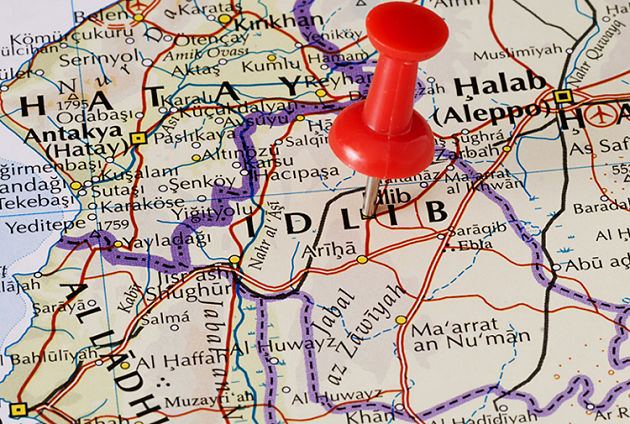The fall of the important strategic center of Khan Sheikhoun, the capture of which paves the way for the Assad regime to take control of rebel-held Idlib, is significant news in itself, although it should be seen in the context of the overall geopolitical situation developing in Syria and even the Mediterranean as a whole.
But let’s take it one step at a time. The Assad regime launched an offensive on the An-Nimr checkpoint in southern Idlib, disregarding not only the previously agreed ceasefire but also the presence of a Turkish military convoy, which was blocked after the closure of the M5 highway. Moreover, when the Turks attempted to manipulate their convoy, it was simply shot down by Assad’s air force, resulting in the deaths of several rebel commanders collaborating with Turkish intelligence (Faylaq al-Sham).
The Assad forces were not deterred by statements about plans to establish a Turkish military base in Khan Sheikhoun or “urgent consultations” between Ankara and Moscow, nor by the incursions of Turkish fighter jets and drones into the combat zone, which were limited to a “show of force” (essentially weakness). They were not deterred because before that, Assad’s forces deliberately concentrated their efforts in one direction, while the Turks withdrew them from Idlib to participate in an operation against the YPG in northeastern Syria that had been planned for several years, and then attempted to transfer them back while simultaneously negotiating with both the Americans and the Russians.
As a result, they are now in the same situation with the Americans, but the Russians, or even just the Assad forces, took advantage of these Turkish maneuvers to achieve their strategic goal – to gain control over the entire administrative border of Idlib province and the northern part of Hama province, creating a stronghold for the final capture of the entire rebel enclave.
In principle, these Turkish games on two fronts in Syria are already well known. Aleppo was handed over in the same way, with part of the rebel forces being transferred to the area of Operation Euphrates Shield. Similarly, forces from Hama were moved to the area of Operation Olive Branch. In both cases, however, there was an exchange – something was given up, but something was gained, which can be considered a favorable deal from the point of view of Turkey and its allies in Syria, although many may disagree.
In this case, however, not only is Idlib already being surrendered – despite Ankara’s repeated promises not to allow it – without a parallel operation capable of compensating for this loss, but it is being done in a way that simply damages Turkey’s reputation. Even if the Turks reach an agreement with the Americans tomorrow and recoup their losses at the expense of the Kurdish communists, what kind of reputation and ambitions can a regional power talk about if Ankara allows its military to be bombed with impunity and positions itself as a kind of third-rate proxy force for Russia and Iran in the region?
Moreover, in this case, unlike the previous two, many experts in both Russia and Turkey tend to believe that there was no secret deal between Moscow and Ankara and that the latter was simply presented with a fact. Against this backdrop, various Turkish analysts, whether Abdurrahman Dilpak of the pro-government Akit or Murat Sabuncu of the opposition Cumhuriyet, are talking about the end of the short-lived partnership between Moscow and Ankara in the region and a cooling of relations between the two countries – something we wrote about a month and a half ago.
In the context of what we specifically wrote about – the deterioration of these relations due to Turkey’s shift to an active Mediterranean strategy – it is impossible not to mention Vladimir Putin’s visit to Paris yesterday, where he proposed to his colleague Emmanuel Macron “the coordination of efforts to resolve the situation in Libya”. In this regard, it should be noted that both Russia and, in fact, France are betting on the adventurer-field marshal Khalifa Haftar in Libya, while Turkey supports the internationally recognized Government of National Accord, which has managed to repel a series of attacks by the coup leader. Therefore, such synchronicity in Putin’s attempts to build his own Mediterranean strategy to counter Erdogan and his unfriendly actions against the latter in Syria can hardly be considered coincidental.
In such a situation, Erdogan’s problem seems to be that he is taking on too much at once, raising the stakes of the game and antagonizing numerous enemies, while not even accomplishing what he could have done with a basic sequence of steps. The holding of Idlib is exactly such an example, especially since Ankara had the opportunity not to commit itself to this task due to the refusal of its controlling faction of the HTS to leave or disband, and also to hand it over at least in the context of territorial gains in the new operation. For now, we see that Idlib is falling despite assurances, Manbij is not being taken despite years of promises, and a new coalition against Turkey is forming in the Mediterranean…

